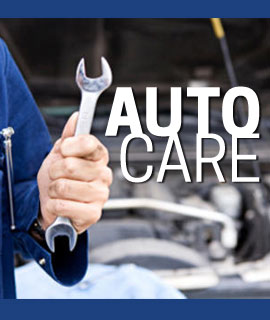Vehicle maintenance and repair is among the key areas that consumers rely on expert guidance and assistance with on a regular basis. Finding the right professionals to start a long term relationship with is important; you’ll need to trust that their judgment is sound and that their advice is in your best interests. They will also help you with helpful reminders, tips, and establishing good habits that will keep you safe and inevitably extend the life of your vehicle.
 “While there are seasonal considerations for vehicles that come into play with respect to general maintenance, we typically like to get our customers in the habit of coming in for regular oil changes and assessing their vehicle at that time for the maintenance items that need to be done at that particular mileage,” advises Charley Olson, owner of Meineke Car Care Center. “Tire rotation is a perfect example of this; it should be done every 6,000 miles to get the most life out of your tires, so you should plan to have this service done every two oil changes. This is the time when brakes and suspension would be checked as well. Every vehicle is different, and following manufacturer’s guidelines is generally optimal because in this day and age they are almost accurate down to the exact mileage for suggested maintenance.
“While there are seasonal considerations for vehicles that come into play with respect to general maintenance, we typically like to get our customers in the habit of coming in for regular oil changes and assessing their vehicle at that time for the maintenance items that need to be done at that particular mileage,” advises Charley Olson, owner of Meineke Car Care Center. “Tire rotation is a perfect example of this; it should be done every 6,000 miles to get the most life out of your tires, so you should plan to have this service done every two oil changes. This is the time when brakes and suspension would be checked as well. Every vehicle is different, and following manufacturer’s guidelines is generally optimal because in this day and age they are almost accurate down to the exact mileage for suggested maintenance.
Existing issues that don’t require immediate attention should definitely be factored into your plan moving forward as well. For example, did you notice last fall that the air coming out of your vents when your air conditioner was on was a little warmer than it had been during the summer months? Once temperatures are consistently milder, you’ll also want to have your A/C system checked and serviced. Right now there are a lot of potholes around town that we are driving over, so after winter weather is behind us it’s important to have the alignment checked. Shocks and struts can also be affected, and in general are something that often gets overlooked as it is. They also have the potential to damage your tires if they are worn out and you don’t have any dampening of the suspension. Typically shocks and struts should be replaced at around 75,000 miles.
As a good rule of thumb, you should always consider handling any maintenance requirements sooner rather than later. We try to err on the conservative side, and most of our vendors offer product and/or service warranties and even rebates depending on the service so we offer those recommendations to our clients as well. There are plenty of services required to maintain the proper functioning of a vehicle, as we all know, and it can become a little overwhelming if you don’t approach vehicle maintenance proactively.”
 “It’s important to have maintenance plan in place if you want to keep your wheels on the road and not in the shop,” agrees Andy Dingman of Dingman’s Collision Center. “Most vehicles have a recommended maintenance plan provided from the vehicle manufacturer, which includes have specific checks and maintenance to be performed at certain mileage intervals. If you haven’t followed the factory plan it’s not too late to start, and any mechanical service center can get you back on track.”
“It’s important to have maintenance plan in place if you want to keep your wheels on the road and not in the shop,” agrees Andy Dingman of Dingman’s Collision Center. “Most vehicles have a recommended maintenance plan provided from the vehicle manufacturer, which includes have specific checks and maintenance to be performed at certain mileage intervals. If you haven’t followed the factory plan it’s not too late to start, and any mechanical service center can get you back on track.”
As we still have some winter weather ahead of us as well as the probability of severe weather in the spring, these conditions will affect the safety of the roads. It’s important to be aware of the steps you should take in the event of an accident; here are a few key tips from Dingman’s that are important to keep in mind as the most crucial immediate responses:
*Check all passengers in your vehicle for injuries. Call 911 to have the police dispatched and to request an ambulance if anyone has sustained injuries requiring immediate attention.
*Start to record the facts. You need to know who’s at fault. If the other party is at fault they should not leave the scene before giving you a written statement showing they are taking responsibility for the collision. Exchange insurance information and make sure to get the agent’s name and phone number and the effective dates of the insurance. Do a map drawing to show how the accident occurred. Know the year, make, model, license number, and color of the other vehicle involved. Get the name, address, and phone number of all witnesses. Get the police officer’s name and badge number. It is important to get as much information written down so that later on you’ll have the information you need.
Taking care of your vehicle’s maintenance needs on a regular basis and having plan of action in place for emergencies, such as if your vehicle breaks down or sustains damage, will help you protect your investment and avoid costly or dangerous situations down the road. When in doubt, make sure to consult your local automotive professionals–sooner rather than later!

